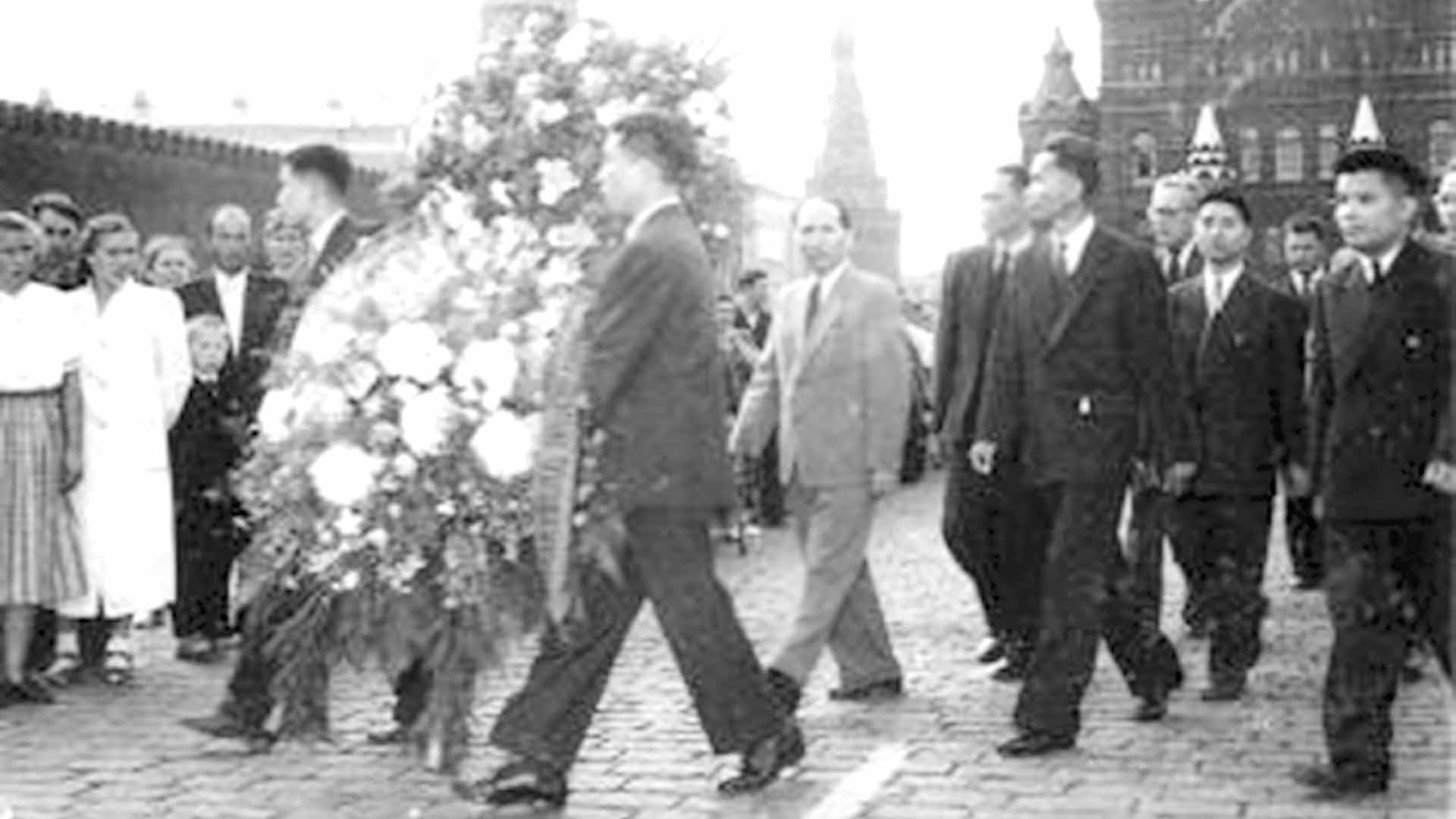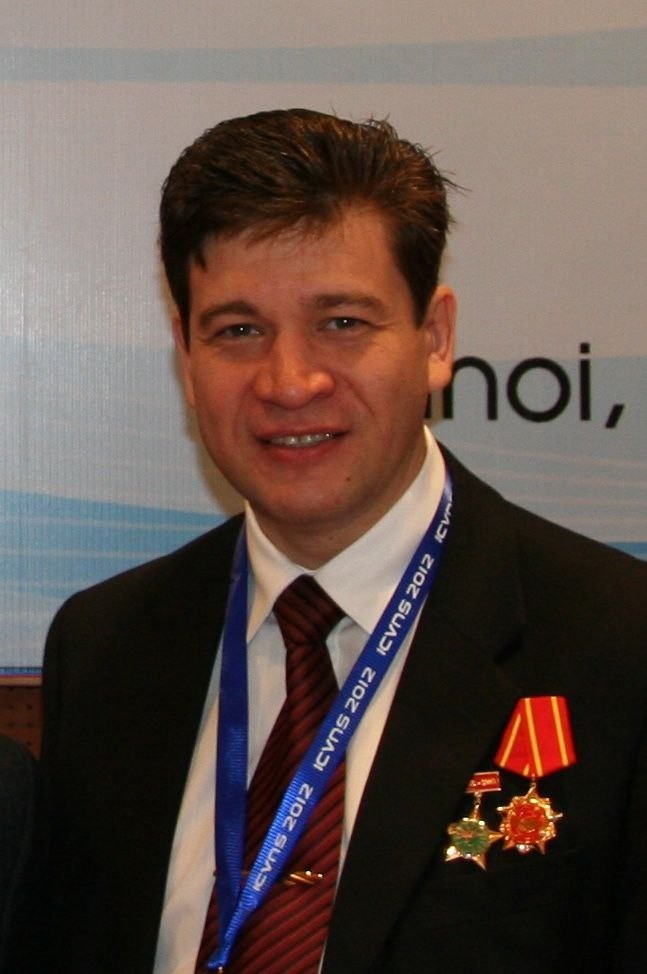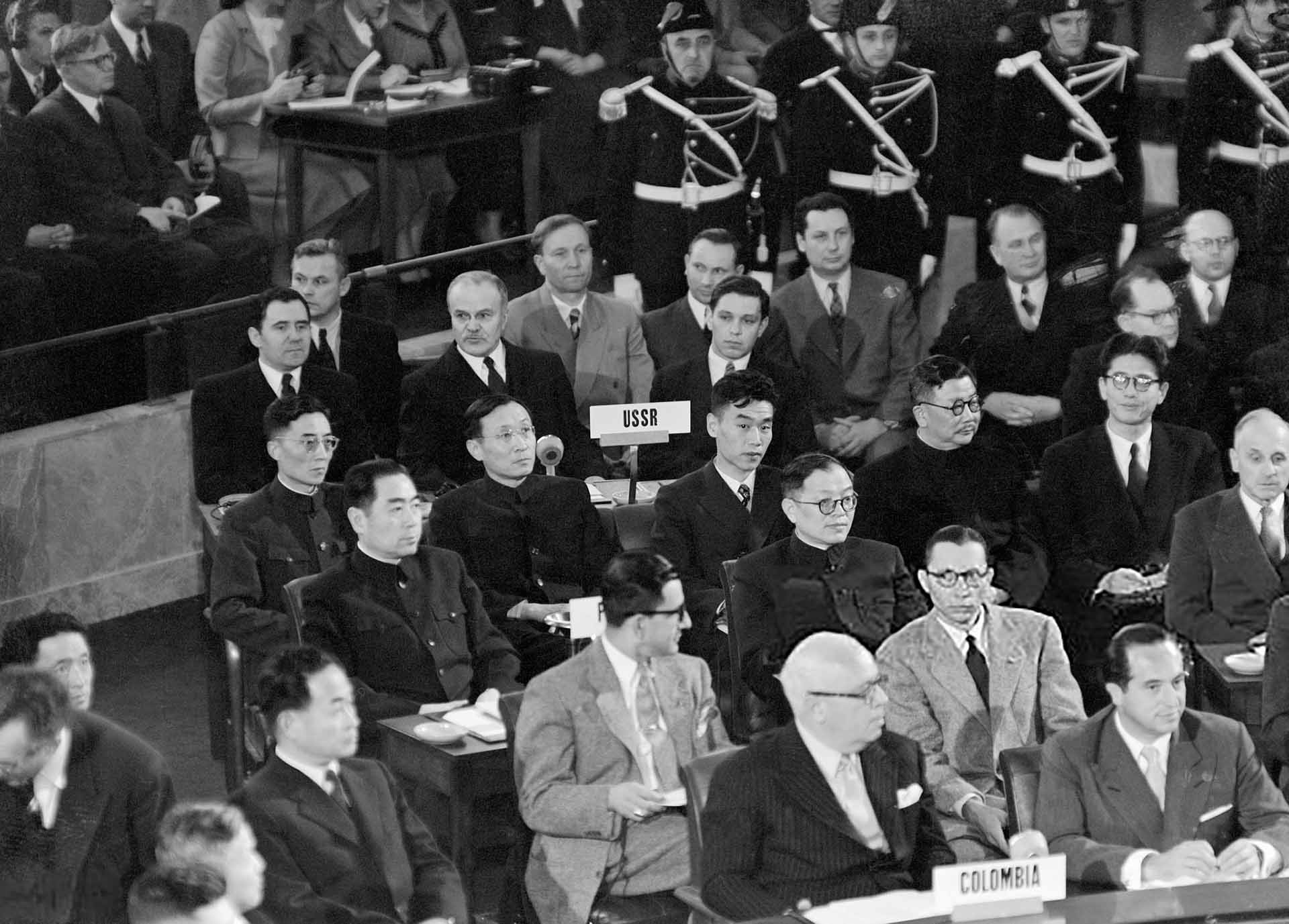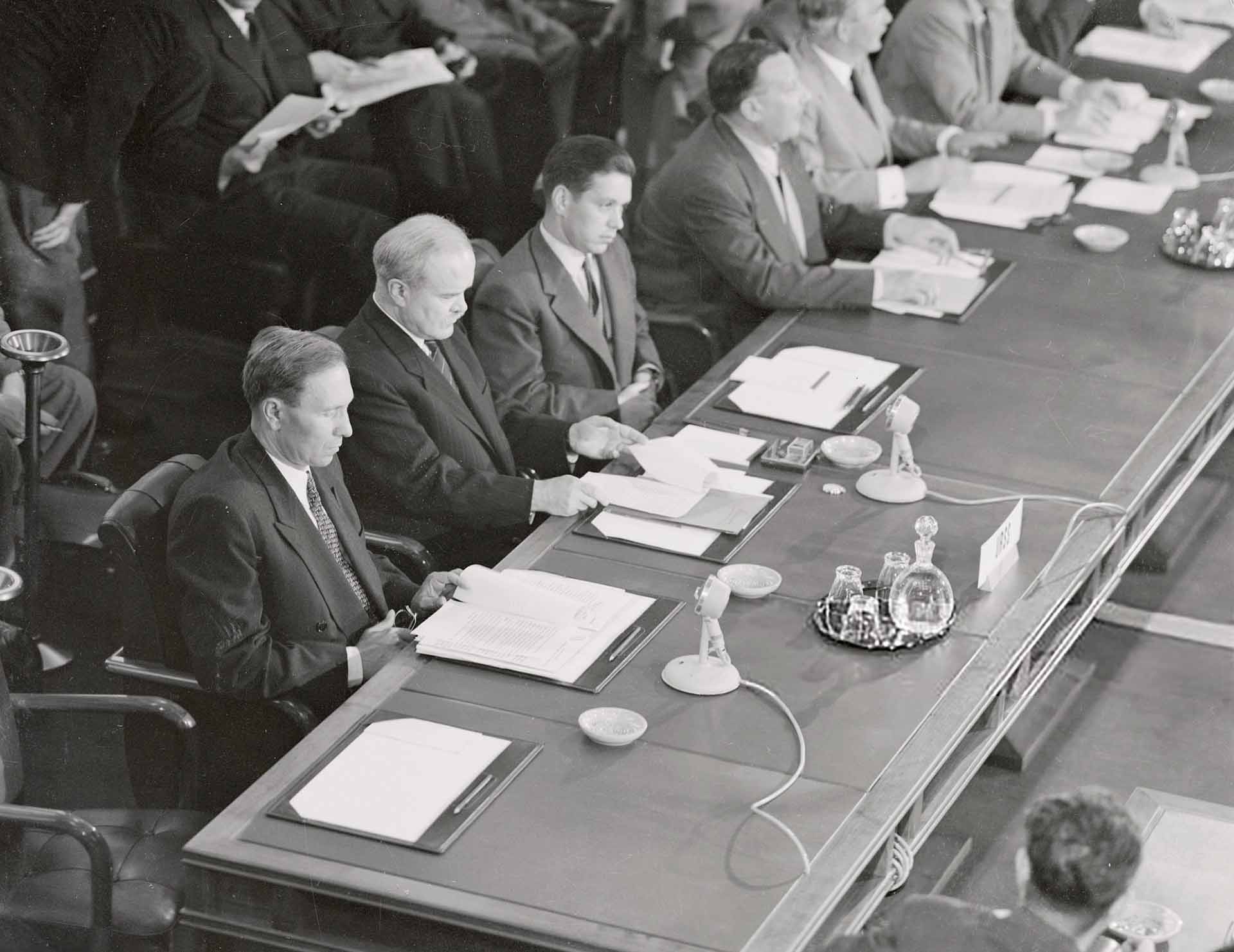
The Soviet Union’s role in negotiating and signing the Geneva Agreements
Latest
 |
| The delegation of the DRV laid flowers at Lenin’s Mausoleum after the end of the Geneva Conference. |
During the conference, reports emerged regarding the surrender of the French garrison in the seemingly “impregnable” fortress of Dien Bien Phu. It should be noted that the conference itself lasted longer (26/4–21/7/1954) than the Battle of Dien Bien Phu (13/3–07/5/1954), underscoring the intensity of the diplomatic confrontation.
FIVE-LEVEL EFFECT
On the one hand, it was important to achieve victory on the battlefield, and on the other, it was no less important to defend gains in the international arena and achieve lasting peace, taking into account the interests of the Democratic Republic of Vietnam.
 |
| Prof.Dr. Kolotov Vladimir Nikolaevich |
The stunning but highly localized defeat at Dien Bien Phu led to a domino effect on five levels: tactical, strategic, diplomatic, political and geopolitical. The tactical victory at the Battle of Dien Bien Phu led to victory at the strategic level - the First Indochina War. It led to a victory at the diplomatic level - the signing of the Geneva Agreements. This led to victory at the political level and the liberation of territory north of the 17th parallel and the withdrawal of French troops from North Vietnam.
hus, the resistance forces emerged from the mountainous forested area near the borders of China and Laos and for the first time established their control over the plain territories. For several months until October 1954, the French withdrew up to 90 thousand soldiers and officers of the French Expeditionary Force from North Vietnam. And this led to an important geopolitical change, the emergence of the first socialist state in Southeast Asia.
At all these levels, before and after, next to the Democratic Republic of Vietnam (DRV) there was a reliable ally - the Soviet Union (USSR). It was Moscow that in April 1954 initiated the Geneva Agreements, and also achieved the inclusion of representatives of the Democratic Republic of Vietnam and the People’s Republic of China (PRC) among the participants of the conference. At that time, these countries were not members of the UN and Western countries refused to sit at the same table with them.
 |
| Soviet Foreign Minister V. Mikhailovich Molotov and Chinese Foreign Minister Zhou Enlai at a meeting in Geneva. |
This was an important first victory for the Soviet diplomatic mission, which was personally headed by Foreign Minister V.M. Molotov. The instructions of the Soviet diplomats who took part in the conference provided for, in extremely general terms, the following main directions of work: (i) to achieve the recognition by Paris of the sovereignty of DRV, Laos and Cambodia; (ii) to agree on the withdrawal of foreign troops from the countries of Indochina; (iii) to agree on the holding of general elections in the countries of Indochina.
These were the instructions received from Moscow. It was these provisions, in the formulations proposed by Soviet diplomats that were included in the final text of the document adopted in Geneva.
Representatives from Paris took an unconstructive position from the very beginning, which changed only after the change of government in the second half of June and a series of meetings at the expert level. The first direct negotiations between representatives of the Democratic Republic of Vietnam and France took place only after June 25. An important role was played by the transition from holding plenary meetings to holding closed bilateral and multilateral meetings, during which a more constructive dialogue was achieved behind closed doors.
AMERICAN FACTOR
Despite the fact that during a whole marathon of bilateral and multilateral open and closed meetings, the positions of the parties were agreed upon, the Geneva Agreements were not signed due to the demarche of the US representative, who was not satisfied with the transfer of vast territories in northern Vietnam to the control of the Vietnamese communists. The Head of the Soviet diplomatic mission proposed to adopt the common final document without the physical signatures of the participants but by mutual acknowledgment. This diplomatic maneuver averted a breakdown in negotiations and facilitated the eventual conclusion of the Geneva Agreements.
US diplomats tried several times to disrupt the negotiations, and it was the US representative B. Smith who at the very end refused to sign the final document. It was the United States, immediately after agreeing on the text of the final document that took practical steps to torpedo the agreements reached and began a new round of geopolitical games in Indochina.
After agreeing on the text of the agreement, the antagonistic positions of the contracting parties gradually led to the de facto breakdown of the last points on the ban on arms supplies and the holding of general elections, but the first points (ceasefire, withdrawal of troops, drawing a temporary demarcation line) were implemented.
 |
| Soviet Union Delegation at the Five Power Conference on Indochina. |
OUTCOMES FOR THE FUTURE
Despite this, the Geneva Agreements on Vietnam should be considered a success, since it created a base of patriotic forces north of the 17th parallel, which made it possible to fight for the unification of the country in the future. The presence of a common border with the PRC, and through it with the USSR became an important factor in receiving help from Moscow and Beijing to continue the liberation struggle and build a new state.
Western countries set a course for disrupting the Geneva Agreements almost immediately after the positions were agreed upon, which was manifested in sending Ngo Dinh Diem to Saigon from the United States, who, under American pressure, was quickly approved as Prime Minister of the State of Vietnam. It was this step that caused the disruption of the implementation of the Geneva Agreements, the creation of a dependent regime in the South, the refusal to hold general elections, mass repressions in the territory under the control of the Saigon regime, the entry of American advisers and then the US armed forces, as well as the beginning of the Second Indochina War.
IMPORTANT HISTORICAL LESSONS
At the strategic level: Even after suffering a military defeat in the Battle of Dien Bien Phu, Western countries did not abandon their aggressive intentions and continued their course towards the division of Vietnam, installing a dependent regime in the southern part of the country and later conducting military intervention to maintain it.
At the tactical level: Once Western countries make a strategic decision, they make every effort to achieve it, regardless of the content of the international agreements reached.
Currently, this concept is based on the so-called “rules-based order”, which is constantly changing in favor of Western countries. We can observe these features even today, which are the main cause of ongoing conflicts around the world.













